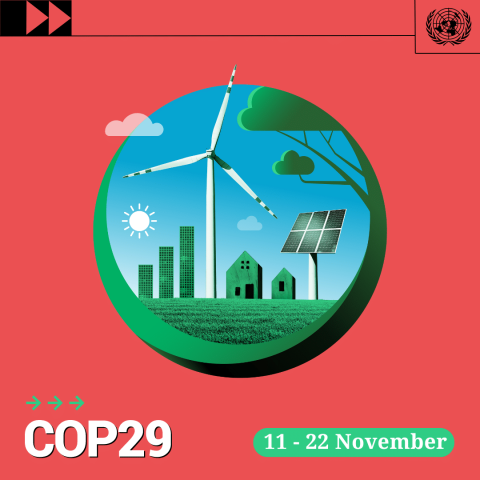2024 is set to become the hottest year on record, marking a critical milestone in the history of climate change. Projections from the European Union’s Copernicus Climate Change Service show that global temperatures have surpassed the 1.5 degrees Celsius increase above pre-industrial levels, a symbolic threshold that underscores the urgency of addressing climate change.
The data arrives just days before the start of the COP29 climate summit in Azerbaijan, where world leaders will grapple with how to respond to this alarming trend.
The 1.5 C limit, first proposed in the Paris Agreement of 2015 at COP21, serves as a crucial cap for nations worldwide. 196 countries committed to limit global warming to “well below 2 C above pre-industrial levels,” with the aspiration of keeping the rise under 1.5 C, in an effort to prevent the most severe consequences of climate change, “including more frequent and severe droughts, heatwaves and rainfall.”
According to C3S data, 2024 is set to end with global average temperatures at least 1.55 C above the pre-industrial baseline of 1850-1900. This is a significant increase from last year’s record of 1.45 C. The significance of this year’s warming is exacerbated by its persistence: temperatures have remained high even after the end of an El Niño phase, which typically contributes to short-term warming effects because heat expelled into the ocean takes time to dissipate. This could indicate a more permanent shift in global climate patterns.
The 2024 climate milestone sets the stage for the COP29 summit, which is set to take place between Nov. 11 and Nov. 22 in Baku, Azerbaijan. The summit aims to reinvigorate global efforts to combat climate change, with a primary focus on increasing financial commitments from nations to support climate mitigation and adaptation strategies.
However, the recent victory of Donald Trump in the U.S. presidential election has cast a shadow over the proceedings, dampening expectations for substantial progress at the talks. Trump’s previous stance on climate issues, including withdrawal from the Paris Agreement during his first term, raises concerns about the potential rollback of U.S. climate policies.
Sonia Seneviratne, a climate scientist from ETH Zürich, emphasized the importance of decisive action at COP29, warning that the current pace of emissions reductions is insufficient. “The limits set in the Paris Agreement are starting to crumble given the too-slow pace of climate action across the world,” Seneviratne said. She called for governments to intensify efforts to transition away from fossil fuels, which remain the largest source of greenhouse gas emissions.
The scientific consensus is clear: human-caused climate change is the primary driver of the unprecedented warming observed this year. Carlo Buontempo, director of C3S, noted that the warming trend is evident across all continents and ocean basins, reinforcing the reality that climate change is a global phenomenon with far-reaching impacts.
The effects of surpassing the 1.5 C threshold are already visible in the form of extreme weather events. Over the past year, the world witnessed devastating flash floods in Spain that killed over 200, over 10,000 wildfires in Peru and severe droughts in the Amazon Basin, where river levels have reached historic lows.
The impact of these weather extremes is being felt most acutely in vulnerable regions, where infrastructure is less equipped to handle such shocks. In Bangladesh, flooding destroyed over a million tons of rice, driving up food prices and exacerbating food insecurity. In the U.S., Hurricane Milton’s effects were made 400-800 times worse due to warmer ocean temperatures, causing widespread damage along the Gulf Coast.
Despite the daunting outlook, scientists maintain that it is still possible to mitigate the worst effects of climate change. Stabilizing global temperatures requires immediate, large-scale reductions in greenhouse gas emissions. The United Nations has called for a 43% decline in emissions by 2030 to keep the long-term average temperature increase within the 1.5 C target.
As the world inches closer to a permanent breach of the 1.5 C threshold — expected to occur by 2030 if current trends persist — the pressure on global leaders to act decisively is mounting. The discussions at COP29 will be critical in determining whether nations can muster the political will to accelerate climate action and increase financial support for developing countries, which bear the brunt of climate impacts despite contributing the least to global emissions.
Liz Bentley, chief executive of the Royal Meteorological Society, expressed hope that the latest record will serve as a wake-up call for policymakers. “This latest record sends another stark warning to governments at COP29 of the urgent need for action to limit any further warming,” Bentley said.















